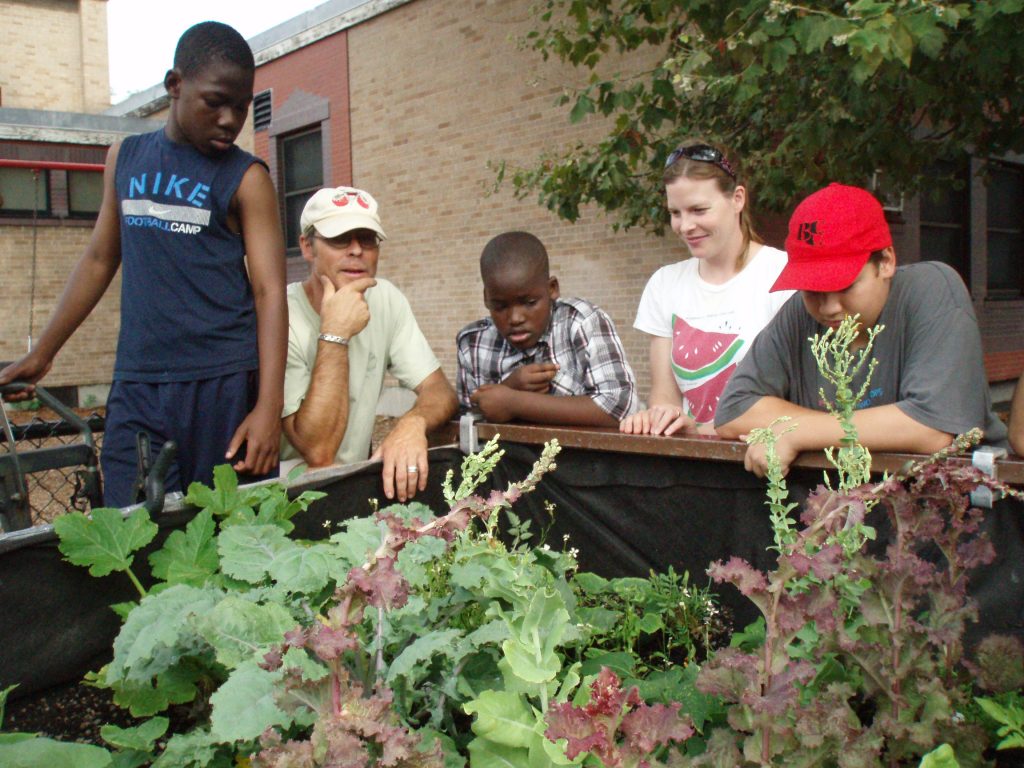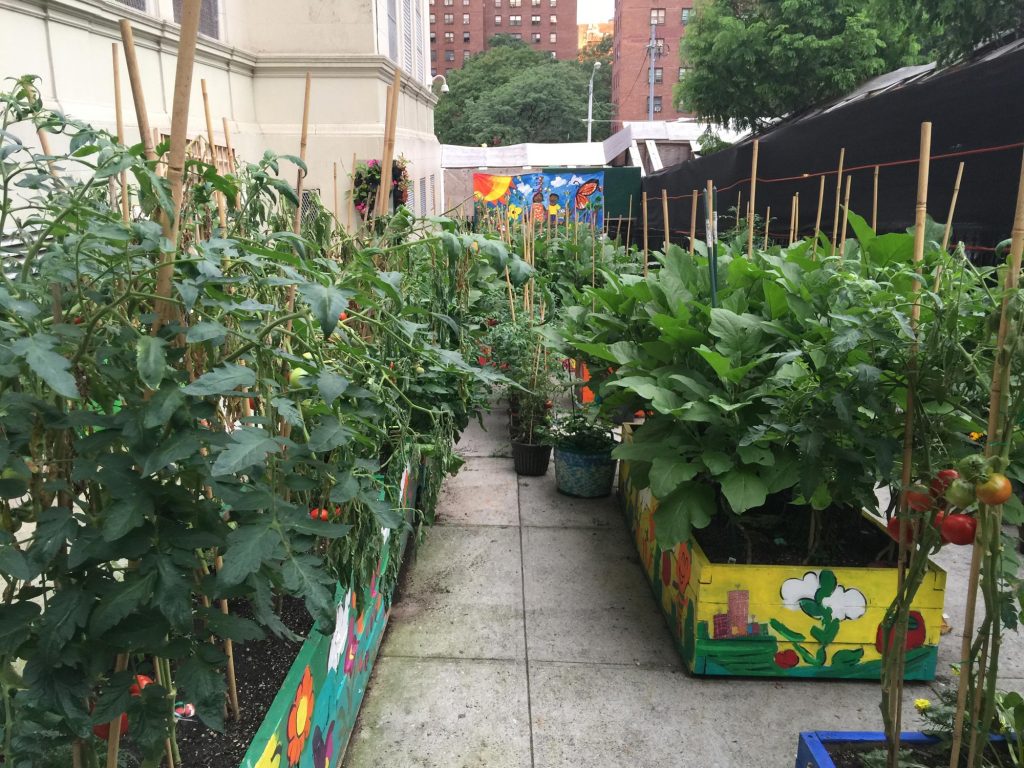On the Ground Insights
In these practitioner-oriented articles, people who are actively involved in school/community gardens talk about how they are beneficial to children for a variety of reasons. One article details the work of Stephen Ritz, who is a teacher in the South Bronx , and whose students have grown produce for many years in their school garden.8 The majority of his students qualify for free/subsidized lunch and live in one of the country’s poorest communities. Because Ritz believes that “nature helps [kids] learn to nurture,” he founded the Green Bronx machine, a school garden program that includes teaching students about healthy eating and gardening, and employing them to build gardens themselves. The program, he says, encourages students to stay in school and go to college.
The article also cites a University of Georgia study that found garden-based learning has an “overwhelmingly positive impact on students’ grades; improves their attitude toward school and bridges language and cross-cultural learning gaps.” This article also addresses one of they key struggles of urban-gardens that I have seen throughout my research: funding. It is very expensive to manage a garden, and Ritz is seeking to expand his program so that it holistic and comprehensive in scope. He hopes to convert an empty library into a center for community, with an indoor commercial farm, a teaching kitchen, and a media resource center.

Summer gardeners at CitySprouts in Boston. Image from http://citysprouts.org/gallery/summer-youth-program/
The benefits and challenges of school gardens are also discussed by Mrs. Kay Lawrence, the agriculture teacher at the John Overton high school in Nashville, TN.9 One of her biggest challenges is the language barrier with her students who speak many different languages. She has to do extra demonstration to communicate topics for her ELL students, but this is also an opportunity for a collaborative environment where students help each other. Working toward a common goal, the students are eager to work together and grow their food.
Additionally, she finds that teaching students skills that they can take home fosters an increased enthusiasm and willingness to participate and cooperate. Being outside and learning how to plant and nurture food, the students often times take what they’ve learned in class and brought it home to their family. Importantly, the diversity of culture in her class is also reflected in the crops they plot: she wants to ensure that her students can dually use their knowledge of gardening and their culture to make the gardening an experience that they really feel connected to. This also creates an opportunity for family and community engagement. Although Stephen Ritz does not explicitly discuss community engagement, Kay Lawrence emphasizes engagement of local Nashville residents by providing opportunities for field trips, serving as guest speakers, and allowing students to shadow them. She partners with local gardens to advise and assist in the program so that students can interact with gardeners in their local community and witness how this can be a sustainable habit.
Like Ritz, Lawrence also believes that urban agriculture programs open doors for future success. Her students are able to dual enroll in either a local university or community college, both of which offer Greenhouse Management degrees. This creates a pipeline for students who are interested in gardening, but would not have been exposed to post-secondary opportunities without this program, thus creating a potential for college enrollment for students who otherwise wouldn’t have considered it as an option.

Photo from Green Bronx Machine https://greenbronxmachine.org/projects/learning-garden-at-cs-community-school-55/
